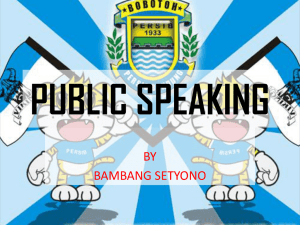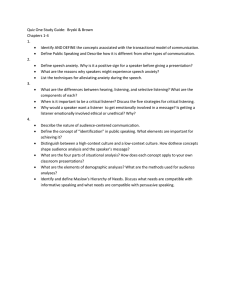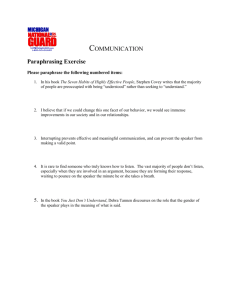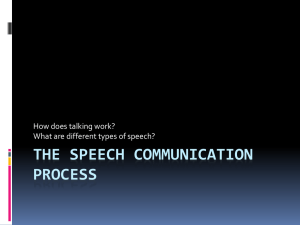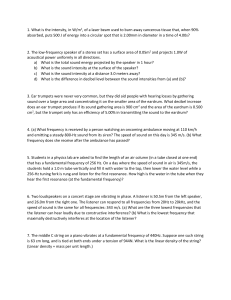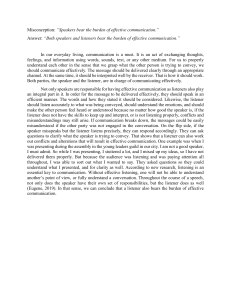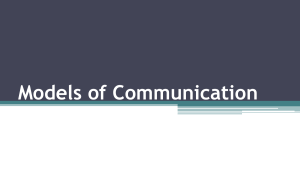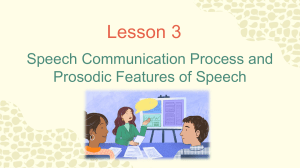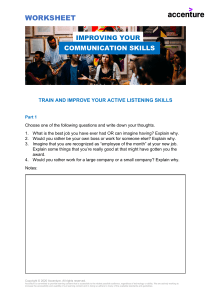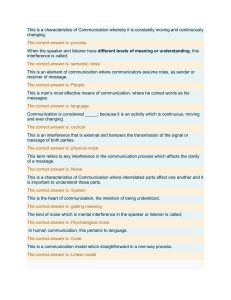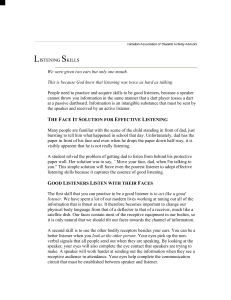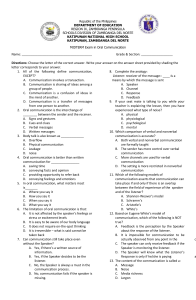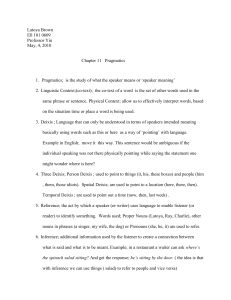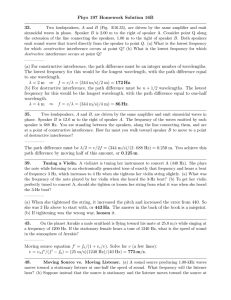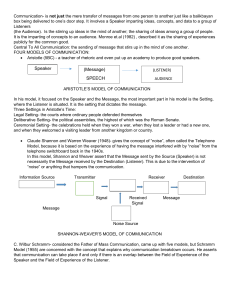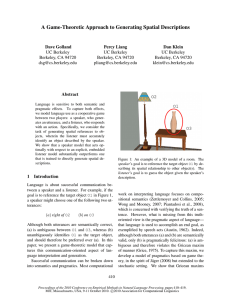EFFECTIVE NOTE MAKING
advertisement
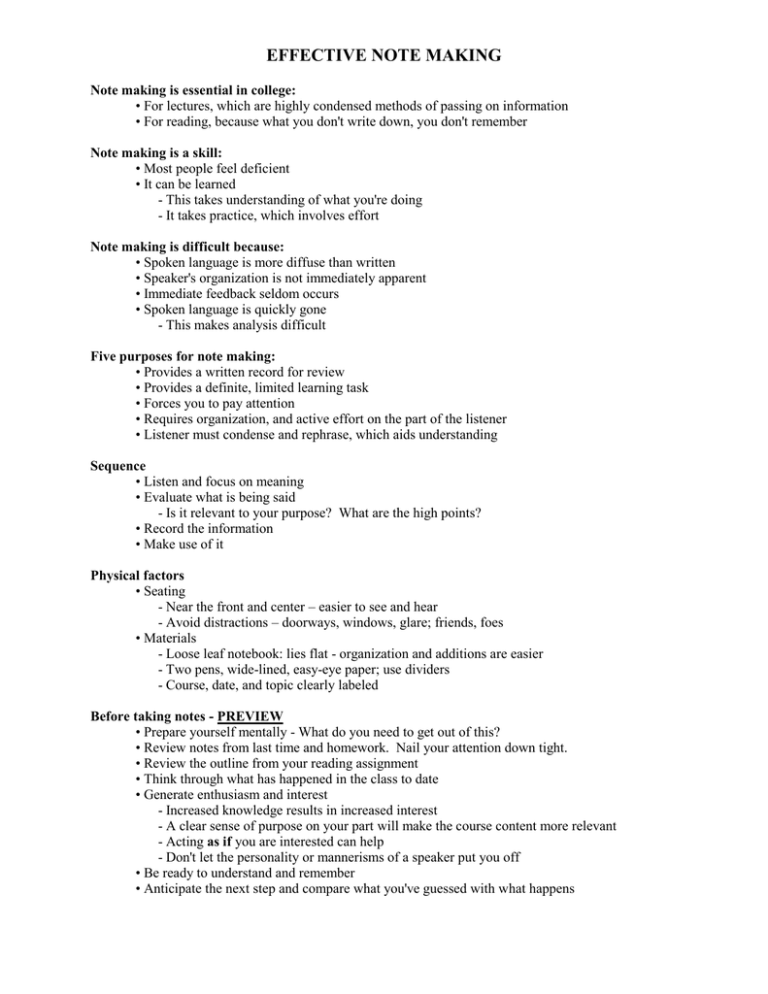
EFFECTIVE NOTE MAKING Note making is essential in college: • For lectures, which are highly condensed methods of passing on information • For reading, because what you don't write down, you don't remember Note making is a skill: • Most people feel deficient • It can be learned - This takes understanding of what you're doing - It takes practice, which involves effort Note making is difficult because: • Spoken language is more diffuse than written • Speaker's organization is not immediately apparent • Immediate feedback seldom occurs • Spoken language is quickly gone - This makes analysis difficult Five purposes for note making: • Provides a written record for review • Provides a definite, limited learning task • Forces you to pay attention • Requires organization, and active effort on the part of the listener • Listener must condense and rephrase, which aids understanding Sequence • Listen and focus on meaning • Evaluate what is being said - Is it relevant to your purpose? What are the high points? • Record the information • Make use of it Physical factors • Seating - Near the front and center – easier to see and hear - Avoid distractions – doorways, windows, glare; friends, foes • Materials - Loose leaf notebook: lies flat - organization and additions are easier - Two pens, wide-lined, easy-eye paper; use dividers - Course, date, and topic clearly labeled Before taking notes - PREVIEW • Prepare yourself mentally - What do you need to get out of this? • Review notes from last time and homework. Nail your attention down tight. • Review the outline from your reading assignment • Think through what has happened in the class to date • Generate enthusiasm and interest - Increased knowledge results in increased interest - A clear sense of purpose on your part will make the course content more relevant - Acting as if you are interested can help - Don't let the personality or mannerisms of a speaker put you off • Be ready to understand and remember • Anticipate the next step and compare what you've guessed with what happens Get Involved! • Tune-in, look, listen for clues: - Tone or gesture of Professor - Repetition; cue words: "remember!" "1,2,3..." reference to text, "in your book it says.." • Notice what conflicts with your current opinions - They are harder to understand and remember • Keep thinking... - Look for emerging patterns - Write questions in margins to be answered later While taking notes • Don't try for a verbatim transcript - Get all of the main ideas - Record some details. illustrations, implications, etc. • Leave plenty of white space for later additions - underscore or star major points • Note speaker's organization of material - Organization aids memory - Organization indicates gaps when they occur - you fill in later • Be accurate - Listen carefully to what is being said - Pay attention to qualifying words like: sometimes, usually, rarely, etc. - Notice signals that a change of direction is coming: but, however, on the other hand • Be an aggressive, not a passive, listener - Jot questions in your notes - Do you believe what you're hearing? What do you believe? - Seek out meanings. Look for implications beyond what is being said. - Relate the material to your other classes and your life outside of school. • Develop a shorthand of your own - Jot down words or phrases; use contractions and abbreviations - Leave out small service words, use symbols: +, =,&, ~) • Try to get the hang of listening and writing at the same time. It can be done - You may practice listening to the news on TV and taking notes After taking notes (POST VIEW: Don't move - go over notes at once! • Review and reword them as soon after class as possible - Build review time into your schedule - Don't just recopy or type without thought - "Reminiscing" may provide forgotten material later - Rewrite incomplete or skimpy parts in greater detail - Fill in gaps as you remember points heard but not recorded - Arrange with another student to compare notes - Find answers to any questions remaining unanswered - Write a brief summary of the class session - Formulate several generalized test questions based on the material • Use your notes as a learning tool - Review at spaced intervals it is more effective than the same effort spent cramming - We forget 50% of what we hear immediately, two days later, another 25% is gone. But relearning is rapid if regular review is used. - Compare the information in your notes with your own experience - don't swallow everything uncritically - Don't reject what seems strange or incorrect. Check it out. Be willing to hold some seeming inconsistencies in your mind over a period of time. - Build a good "thought map" of the ideas. Explain it to anyone who'll listen. - Memorize that which must be memorized. For more information visit our Web page! http://www.middlebury.edu/~learn Office of Learning Resources • Center for Teaching, Learning, and Research • X3131
